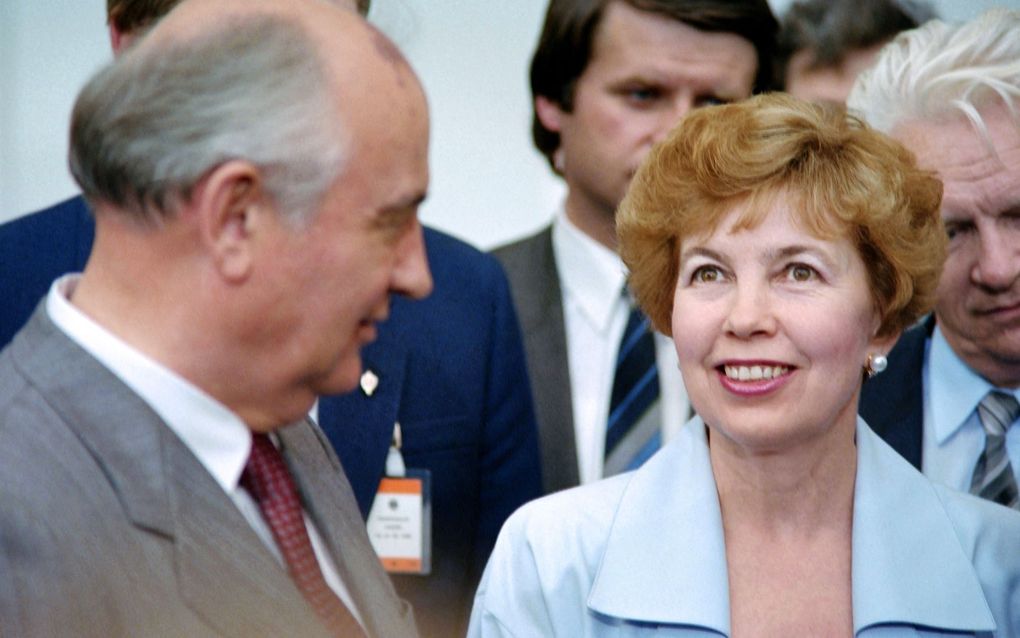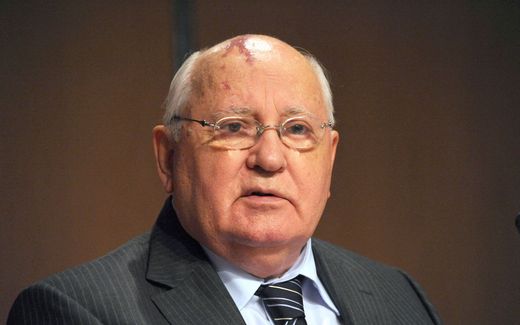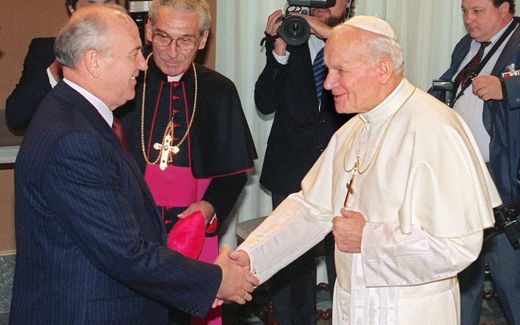Gorbachev campaigned for strong and sober mothers

Mikhail with his wife Raisa, in June 1989 in Western Germany. Photo AFP
Eastern Europe
Mikhail Gorbachev (1931-2022) was a bit different when he started his career within the stairs of the Communist Party. All his palls were known for their perversity. But "Gorbi" was an example of sobriety. And in between, he pleaded for motherhood as a "purely feminine mission."
The man who died last Tuesday at 91 lived more or less as a teetotaller. And above that, in all his years with Raisa, he remained faithful to her. That behaviour and discipline were seen as exceptional in the top circles of the Soviet Union.
One of the first things he did as a leader in 1985 was a campaign against the excessive use of alcohol. For ages, Russia was intoxicated by vodka and other drinks. Gorbachev tried to change that, but he failed. The change is still in the future.
His policies of Glasnost & Perestroika brought more freedom to the churches. He himself was never known as a professing Christian. Still, he knew about the Biblical history. In an interview, he once told that he was born in a peasant family. "They took her to the barn and there I was born as Jesus Christ on the straw," he said.
History tells that he was baptised in the Russian Orthodox Church under the influence of his grandparents; an act that was not without danger in the early thirties.
Interesting is that the same happened with Mikhail's and Raisa's own daughter Irina. Because of their work, the parents had to let their daughter with her grandparents for a while. When Irina got quite a severe illness, the grandparents took the little girl to be baptised.
Health of the family
Much of Gorbachev's book "Perestroika: New Thinking for Our Country and the World" from 1985 might be outdated, almost 40 years after its publication. By browsing through the book, there is one topic still as current as it was then: motherhood.

First, he praised the economic deployment of women, how they helped to win the war and how they built the post-war economy. But, during this "heroic history", the Soviet Union had neglected the real "needs of women", flowing from their role as mothers and their "indispensable task in bringing up children".
Yes, it is good that women do "scientific research, work in construction, and industry", but this leads to one problem: "Women no longer have enough time to fulfil their daily duties at home: housekeeping, bringing up children and creating a cosy atmosphere in the house."
This has led to a new problem: "We have discovered that many of our problems concerning the behaviour of children and young people, concerning our morals, culture and about production, are partly caused by the weakening of family ties and a lax attitude to family responsibilities. This is a paradoxical consequence of our sincere and politically justified desire to make women equal to men in this respect. In the context of perestroika, we have now begun to overcome this shortcoming. That is why we are now holding heated debates in the press, in public organisations, at work and at home on what we need to do to enable women to regain their purely feminine mission."
For Gorbachev, the connection between womanhood, motherhood and "daily duties" in the home seemed to be self-evident, notwithstanding their emancipation. Today, speaking about a "purely feminine mission" in the West might be highly sensitive.
The author positions the anti-alcohol campaign in the context of family policy. Less drinking meant "improving the family's health and enhancing its role in society."
Related Articles





